THREAD: latin americas crossroads will sustainable...
LifeLine™ Media threads use our sophisticated algorithms to construct a thread around any topic you want, providing you with a detailed timeline, analysis, and related articles.

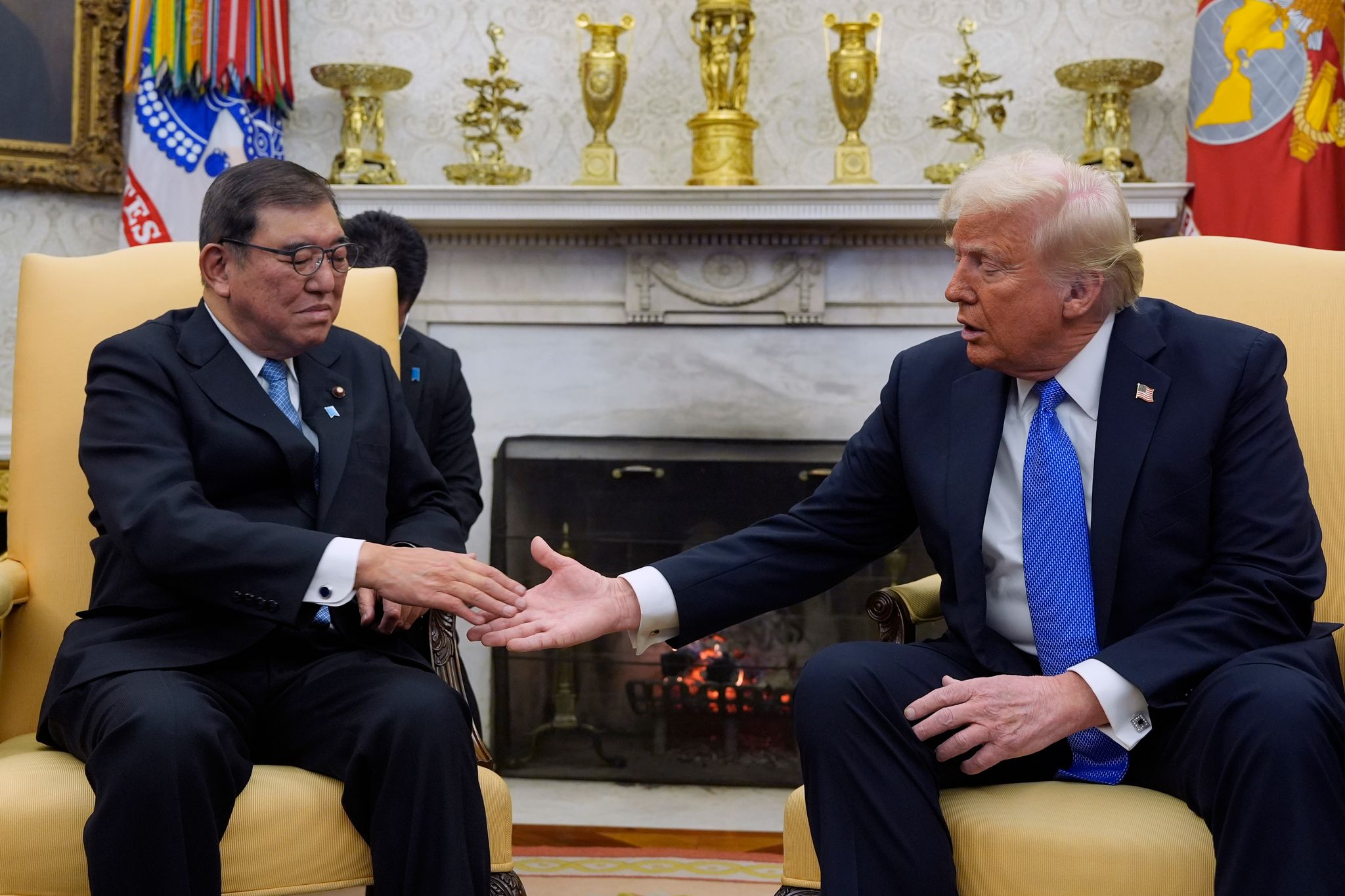
$12 TRILLION TRADE Deficit Shocks America: Urgent Calls for Stronger Policies
— America’s trade deficit just hit a record $1.2 trillion, setting off alarm bells in Washington and around the world. The Treasury says there has been “substantial progress” in recent talks with China, but they aren’t sharing details.
Top U.S. and Chinese officials met in Switzerland to try to ease a tense trade war filled with new tariffs. But this huge deficit shows America is still struggling to balance trade with China and other countries.
This financial milestone is a warning sign for the U.S. economy and our place on the world stage. Lawmakers now face growing pressure to find real answers that protect American jobs and businesses.
Conservatives say it’s time for strong, America-first trade policies. They believe bold action is needed now more than ever to bring back stability and stop foreign competitors from taking advantage of our country.
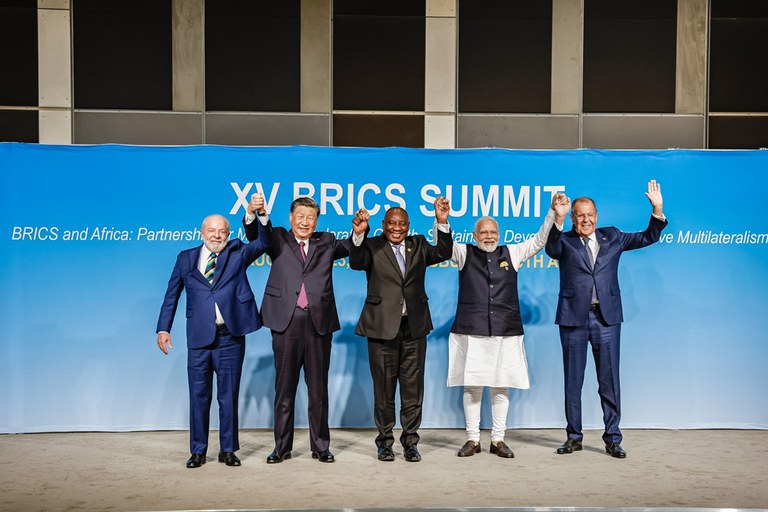
BRAZIL’S Bold Gamble: Global Power Play Ignites Trade WAR Fears
— Brazil is grabbing the world’s attention as it gets ready to host the BRICS summit in July 2025. President Lula da Silva is leading a busy schedule, with plans for a regional meeting in Honduras, an official visit to France, and support for peace talks between Russia and Ukraine during his trip to Portugal.
These moves come at a tense moment. President Trump has warned he may slap new tariffs on Russian oil if there’s no deal over Ukraine. Meanwhile, China is trying to pull Latin America closer through its CELAC forum, hoping to boost its influence in the region.
Brazil’s active diplomacy shows it wants a bigger role on the world stage. The country hopes to act as mediator between major powers like the US, Russia, and China while pushing for stronger ties in Latin America.
With trade wars looming and global tensions rising, Brazil’s bold approach could shape how these big issues play out — or backfire if things go wrong.
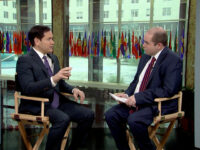
RUBIO SOUNDS Alarm on Russia-China Threat
— Senator Marco Rubio is sounding the alarm about Russia’s growing reliance on China. He warns this could lead to two nuclear powers uniting against the United States. Rubio stresses that U.S.-China relations will shape the century and highlights the need for diplomatic ties with both nations. A permanent Russia-China alliance, he says, threatens global stability and American interests.
While in Panama, Rubio convinced its government to leave China’s Belt and Road Initiative. He stressed the Panama Canal’s strategic importance for U.S. trade and voiced concerns over Chinese control of key ports there. Criticizing past decisions that let China gain influence in this vital region, he called for pro-American partnerships in Latin America.
Rubio praised President Trump’s efforts to counter China’s global influence through projects like the India-Middle East-Europe Economic Corridor (IMEC). This initiative aims to create new trade routes, reducing dependence on China’s economic power. Trump’s strategy strengthens alliances worldwide, especially where Chinese debt diplomacy is a threat, ensuring America’s interests are protected globally from a strong position.

BRAZIL’S Lula Backs Amazon OIL Exploration Before UN Climate Talks
— Brazilian President Lula da Silva is supporting oil exploration in the Amazon rainforest. This decision has drawn criticism from environmental groups, highlighting the clash between economic growth and environmental protection. The move is controversial as it comes just before Brazil hosts the UN climate talks.
MILLIONS FLOCK TO INDIA’S MASSIVE RELIGIOUS GATHERING
India is hosting the world’s largest religious gathering, drawing hundreds of millions over 45 days. The event highlights India’s cultural and religious diversity through various rituals and ceremonies. Authorities are focused on ensuring safety and security for this enormous crowd.
ITALIAN MEAT INDUSTRY GRIEVES CEO AFTER HELICOPTER ACCIDENT
The CEO of a top Italian salami and prosciutto company died in a helicopter crash, leaving a gap in the industry. His work significantly impacted both local economies and global meat markets. Tributes remember him as an innovative leader who will be greatly missed by colleagues and friends alike.
Japan’s SoftBank reported a major loss soon after announcing its AI investment with U.S. President Trump, raising concerns among analysts about its future prospects. The company faces challenges with changing market dynamics and fierce competition within the tech industry.
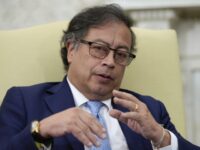
COLOMBIAN PRESIDENT’S Shocking Defense of Cocaine Sparks Global Outrage
— Colombian President Gustavo Petro caused a stir by defending cocaine, arguing it’s only illegal because it’s made in Latin America. He suggested legalizing it could break the drug trade and sell it like wine. Petro compared cocaine to whiskey but didn’t provide scientific proof for his claims.
Petro criticized the U.S.'s handling of fentanyl, highlighting its deadly effects despite not being made in Colombia. He accused North American pharmaceutical firms of introducing fentanyl to Mexico for profit without facing major policy crackdowns. His remarks came during a six-hour government meeting broadcasted nationally, inspired by Cuba’s communist regime practices.
The meeting was unprecedented in Colombian politics but echoed tactics used by socialist regimes like Venezuela’s. Petro called it an “exercise in transparency,” yet it quickly became a platform for public grievances among his administration members. Some officials openly criticized their peers, showing internal discord within Petro’s government.
Petro admitted his administration has failed to meet over 75 percent of its campaign promises since taking office in August 2022. He spent much time scolding his ministers for their lack of progress on key projects, especially targeting the Housing and Defense ministries for unfinished work and criticizing the Education Minister for tardiness.

US RECLAIMS PANAMA Canal: A Bold Move Against China
— Panama’s President José Raúl Mulino announced plans to end a major development deal with China after meeting U.S. Secretary of State Marco Rubio. This decision comes after President Trump raised concerns about China’s influence over the Panama Canal, a key shipping route connecting the Pacific Ocean and the Caribbean Sea. Mulino stressed that Panama’s control over the canal remains firm but showed interest in boosting ties with the United States instead of renewing its 2017 agreement with China’s Belt and Road Initiative.
On his first international trip since confirmation, Secretary Marco Rubio promised to further America’s interests in Panama. He emphasized his dedication to advancing President Trump’s “America First” foreign policy during meetings with U.S. Embassy staff in Panama City. Rubio declared that the United States will not allow more Chinese control over this strategic waterway, echoing Trump’s resolve to protect American economic interests in global trade routes.
Trump has criticized China’s alleged grip on the canal, accusing Beijing of charging high fees on U.S. ships using this crucial passage built by America and handed to Panama under President Carter’s administration. By refocusing on U.S.-Panama relations, both Trump and Rubio aim to counter what they see as increasing Chinese influence in Latin America’s vital infrastructure projects like the canal itself.

COLOMBIA CHAOS: Peace Talks Fail, Violence Erupts
— At least 80 people have died in northeast Colombia as violence surges after peace talks between the government and rebel forces collapsed. The failed negotiations have reignited fighting, putting civilians in danger and raising fears of human rights abuses.
Local leaders condemn the violence and call for international help to address this humanitarian crisis. They stress the need for new peace talks to stop more bloodshed.
Human rights groups demand immediate investigations into these tragic events and accountability for those responsible. The world community faces pressure to step in and help stabilize this troubled area.
This incident shows Colombia’s fragile peace situation and highlights ongoing challenges in solving conflicts that have plagued the nation for decades.

— Guatemalan forces deploy to Haiti amid escalating gang violence In a bid to stabilize the nation, Guatemalan troops have arrived in Haiti to combat armed gangs wreaking havoc and disrupting humanitarian efforts Ethiopia mourns as truck accident claims 66 lives A tragic incident in southern Ethiopia
— Central America Prepares for Surge in Vulnerable Migrants Honduras and neighboring countries are on high alert for an expected influx of migrants, despite lacking the resources to effectively manage the crisis

— BRICS Poised to Lead Global Economic Growth, Says Putin Russian President Vladimir Putin asserts that the BRICS nations will be the primary drivers of economic expansion, overshadowing Western influence

VENEZUELAN GANG’S Chaos: US Communities Under Threat
— In New York City, kids as young as 11 are reportedly involved in violent robberies linked to the Venezuelan gang Tren De Aragua (TdA). Surveillance footage from Aurora, Colorado shows a brutal attack on a worker by men refusing to accept a bribe. In Texas, two foreign nationals were arrested for allegedly planning to transport firearms for criminal use.
These incidents highlight the growing influence of TdA across the United States. The gang has gained notoriety through violent crimes that have alarmed law enforcement and policymakers. Representative Tony Gonzales of Texas has been vocal about the threat posed by TdA, especially in border communities unprepared for such brutality.
Gonzales and other GOP lawmakers have urged President Biden to designate TdA as a Transnational Criminal Organization. They warn that if unchecked, the gang could unleash terror similar to its impact in Central and South America. The gang’s activities include drug trafficking and human trafficking, leaving devastation across multiple countries.
Authorities caution that Tren De Aragua’s criminal operations pose an increasing danger to American communities nationwide. With its roots in Venezuela’s prisons, this “thug-for-hire” organization is spreading chaos from major cities like New York City down to small towns along border states like Texas.

— **Southeast Asia Emerges as Prime Supply Chain Diversification Hub Amid US-China Tensions** Companies increasingly turn to Southeast Asia for diversifying supply chains amidst escalating tensions between the US and China

— Argentina’s ‘Anarcho-Capitalist’ Milei Holds High-Profile Meetings to Boost Investment Argentinean economist Milei engages with tech giants Altman, Cook, and Pichai to drive investment initiatives
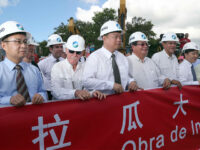
CHINA’S Failed Nicaragua Canal: A Symbol of Lost Ambitions
— The Interoceanic Grand Canal, also known as the Nicaragua Canal, was a bold initiative intended to link the Atlantic and Pacific Oceans via Central America’s largest lake. Daniel Ortega’s government in Nicaragua promoted this $50 billion project as a competitor to the Panama Canal. It also risked boosting China’s influence in the region with a 50-year lease given to HKND Group, led by Chinese tycoon Wang Jing.
Despite breaking ground in December 2014 amid much celebration, no substantial progress ensued. Wang Jing saw his wealth plummet by 85% shortly thereafter. By 2021, he and his company were ousted from the Shanghai Stock Exchange due to unethical practices, signaling a sharp fall from their lofty ambitions.
Following these setbacks, Nicaragua’s National Assembly enacted legal reforms at Ortega’s behest. They annulled previous laws that had granted canal concessions and declared these changes essential for “strengthening” Nicaragua’s legal framework for improved national governance. Critics suggest these actions were mere attempts to recover dignity following an embarrassing failure
In sum, while initially seen as a strategic geopolitical move and economic boon for Nicaragua, the failed canal project has instead become emblematic of overreach and mismanagement under Ortega’s rule.
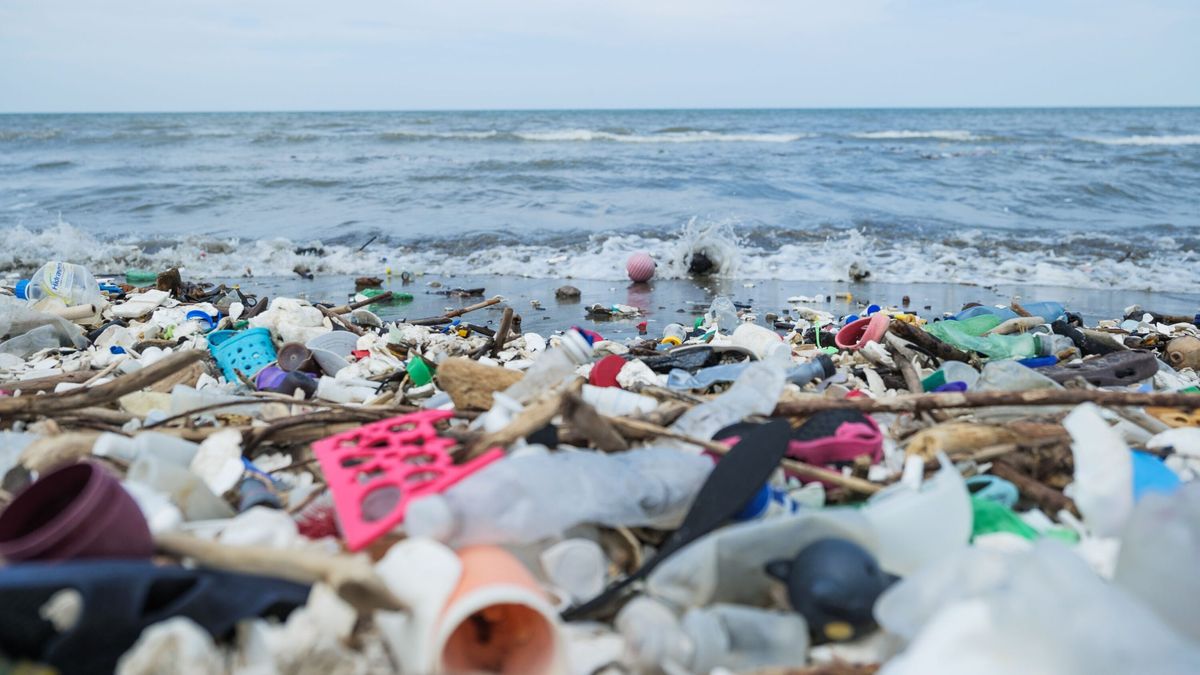
PLASTIC WARFARE: Nations Clash Over New Global Treaty in Ottawa
— For the first time, global negotiators are crafting a treaty aimed at ending plastic pollution. This marks a significant shift from mere discussions to actual treaty language. The talks are part of the fourth in a series of five international plastics summits.
The proposal to limit global plastic production is causing friction among nations. Plastic-producing countries and industries, particularly those linked to oil and gas, strongly oppose these limits. Plastics primarily derive from fossil fuels and chemicals, intensifying the debate.
Industry representatives advocate for a treaty that emphasizes plastic recycling and reuse rather than production cuts. Stewart Harris of the International Council of Chemical Associations highlighted the industry’s commitment to cooperate on implementing such measures. Meanwhile, scientists at the summit aim to counteract misinformation by providing evidence on plastic pollution impacts.
The final meeting is set to address unresolved issues around plastic production limits before concluding negotiations on this groundbreaking treaty. As discussions continue, all eyes are on how these contentious points will be resolved in the upcoming final session.

MEXICAN Authorities STEP UP: Mass Migrant Transportation Back to Interior Regions
— Social media is buzzing with videos showing Mexican immigration enforcement vehicles, packed with detained migrants, moving towards the border of El Paso, Texas from Juarez. The captured migrants are reportedly being transported back to southern Mexico or other interior areas within the nation. In another video clip, a migrant woman implores Mexican immigration officers to let her continue her journey towards Texas. This scene highlights the intense desperation of those pursuing better prospects in America. Mexican immigration officials have set up internal checkpoints a few miles south of Juarez. These posts are designed to intercept buses carrying migrants northward. This strategy illustrates Mexico’s amplified efforts to control its migrant situation and prevent illegal border crossings into the United States.
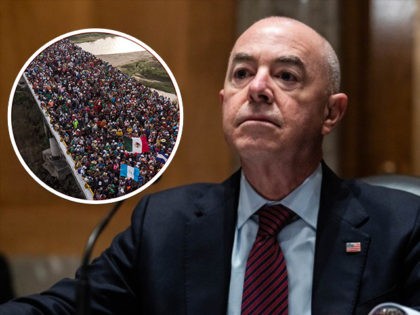
Mayorkas PUSHES for High-Immigration, Low-Productivity Economy: Is the American Dream At RISK?
— In a recent discussion with the New York Times, Alejandro Mayorkas, leader of the Department of Homeland Security, argued for an economy that relies heavily on immigration but yields low productivity. He proposed lawful routes for migrants to meet labor demands. This approach, he believes, would eliminate smugglers and provide a structured method for individuals to arrive and work legally.
Yet Mayorkas overlooked one crucial aspect: our immigration system’s primary objective is to protect American families from being displaced by employers resorting to inexpensive foreign labor. Since 2021, his policies have permitted over 6.2 million migrants access into American homes, schools, hospitals and workplaces.
These policies have led to decreased wages for Americans and escalated rents and housing costs. They’ve also amplified societal rifts and forced many native-born Americans out of their professions.
Mayorkas has consistently advocated for a Canadian-style migration system in America that would cater to companies’ labor preferences. However, Canadians are gradually realizing that their migration approach has inflicted substantial harm on their citizens and economy.
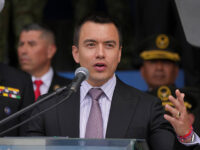
President Noboa SNUBS Maduro’s Aid, COURAGEOUSLY Seeks US Assistance Instead
— Ecuador’s leader, President Noboa, has decisively spurned an offer of support from Venezuela’s Nicolas Maduro. Instead, he has chosen to seek aid from the United States. This decision follows Maduro’s suggestion that Noboa should accept his help rather than succumb to what he labels as U.S. Southern Command’s “interventionism” and “colonialism”.
During a recent interview on Tuesday, Noboa responded to Maduro’s proposition with a firm “Thank you, but no thank you.” He went on to clarify that his decision was not based on personal disagreement with Maduro but stemmed from the need to address pressing issues within his own nation.
Earlier this week, President Noboa engaged in talks with U.S. officials about potential security collaborations. He sought weapons, technology and training for Ecuador’s security forces from the U.S., while also exploring options for refinancing Ecuador’s external debt.
Despite warnings from Maduro about inviting the “devil” into Ecuador — referring indirectly to the United States — and despite criticism at home over his anti-gang policies, President Noboa remains unwavering in his pursuit of American assistance.
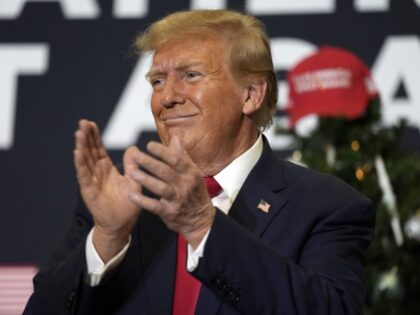
TRUMP’S MAGA Wave Sparks Global Conservative Populist Triumphs
— In a recent interview at Mar-a-Lago, Donald Trump stated that his MAGA-Trump movement is driving a global surge of conservative populist victories. He pointed to Argentina’s new president, Javier Milei, as an example. Milei reportedly thanked Trump for laying the groundwork with his policies. The former US president playfully suggested that Milei’s “Make Argentina Great Again” slogan could also be shortened to MAGA.
Trump’s 2016 triumph over Democrat Hillary Rodham Clinton was not a singular occurrence. It was preceded by significant wins for conservative populists worldwide, such as the Brexit referendum in the UK and Jimmy Morales’s victory in Guatemala’s presidential race. These successes helped ignite the movement that ultimately led to Trump’s ascendancy.
As we approach 2024, conservative populists are making further strides globally. Italy now boasts Giorgia Meloni as Prime Minister and Geert Wilders’ PVV party leads polls in Netherlands. With these victories and more expected throughout the year, it appears a global sweep for conservative populists is on the cards leading up to Trump’s anticipated rematch with Democrat President Joe Biden.

President MILEI’S BOLD Plan to Revive Argentina: Sweeping Reforms Unveiled
— Argentina’s leader, President Javier Milei, has introduced a detailed 351-page bill named “Law of Bases and Starting Points for the Freedom of Argentines.” The President’s Office says this bill is designed to “restore the economic and social order,” as outlined by Argentina’s constitution. Its goal is to tackle obstacles that impede the functioning of a market economy and contribute to national poverty.
This extensive bill reportedly includes two-thirds of Milei’s reform ideas and calls for a public emergency in multiple sectors until December 31, 2025. This period can be extended by up to two years at the discretion of the executive branch. The proposal builds on last week’s Necessity and Urgency Decree (DNU) signed by Milei, which changed or removed over 350 socialist policies.
The DNU’s contents are formalized in this new bill through codification. It also addresses subjects an executive order cannot touch upon, such as criminal law, taxation, and electoral matters. If Congress rejects the DNU, Milei has announced plans for a national vote for its approval.
In terms of state reforms, the proposed legislation advocates privatizing all roughly 40 state-owned enterprises including oil company YPF and Aerolíneas Argentinas airline. Furthermore, it suggests that

Video
ECUADOR FIGHTS Raging Forest Fires: Homes and Health at Risk
— Ecuador is battling severe forest fires that have spread rapidly across various regions. Thousands of acres are burning, prompting urgent responses from firefighting units and emergency services. Strong winds and dry conditions have worsened the situation, causing significant environmental damage.
The Amazon Basin, known for its dense ecological landscape, is the hardest hit. Communities and indigenous populations face evacuation as their homes and livelihoods are threatened. The Ecuadorian government has declared a state of emergency to mobilize additional resources.
Air quality has deteriorated significantly, affecting cities far from the fires like Quito. Public health advisories urge residents to stay indoors and wear masks due to thick smoke. The Ministry of Health reports a surge in hospital visits for smoke inhalation.
International assistance focuses on long-term solutions like early warning systems and sustainable land management practices. This crisis highlights the need to balance human activity with environmental conservation to protect ecosystems and human populations alike.

Social Chatter
What the World is Saying